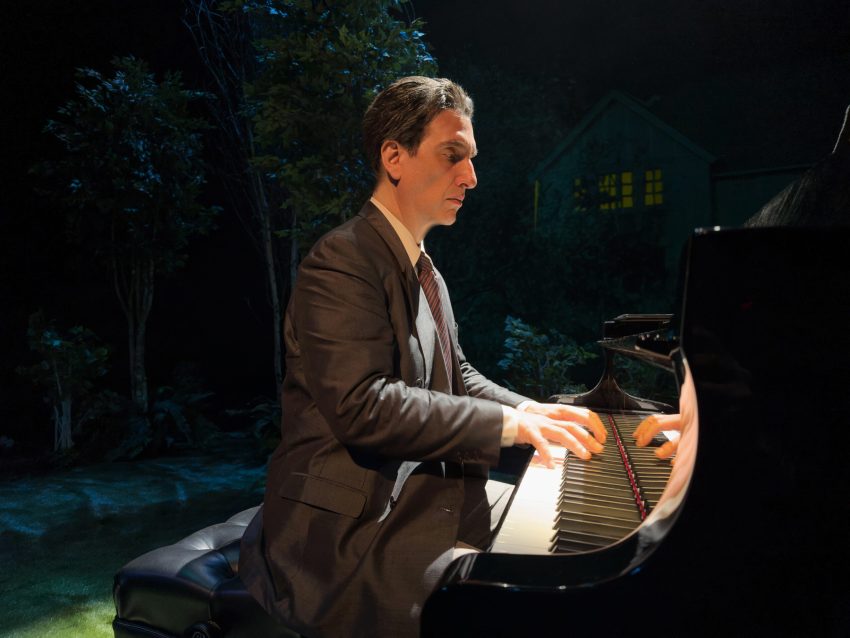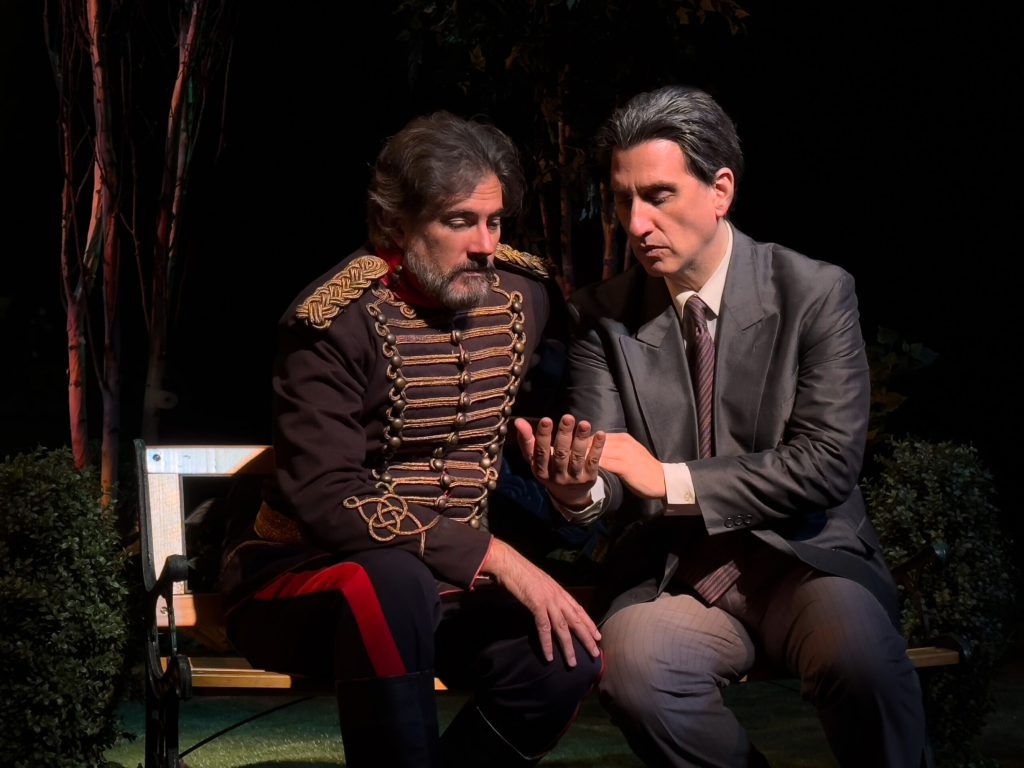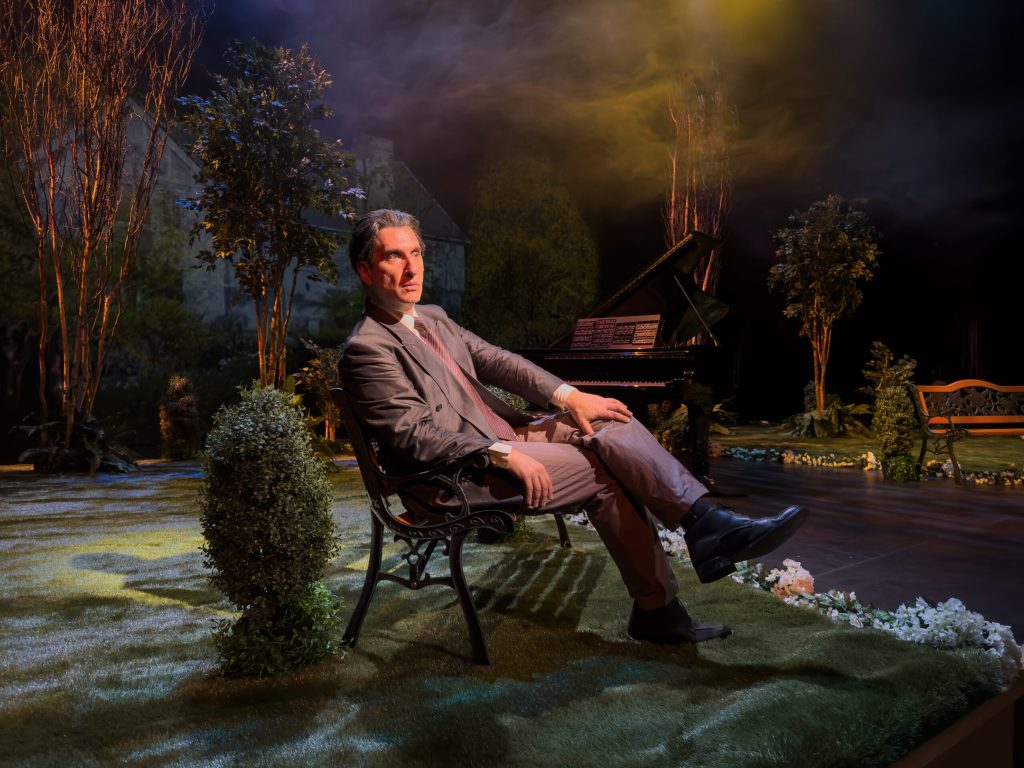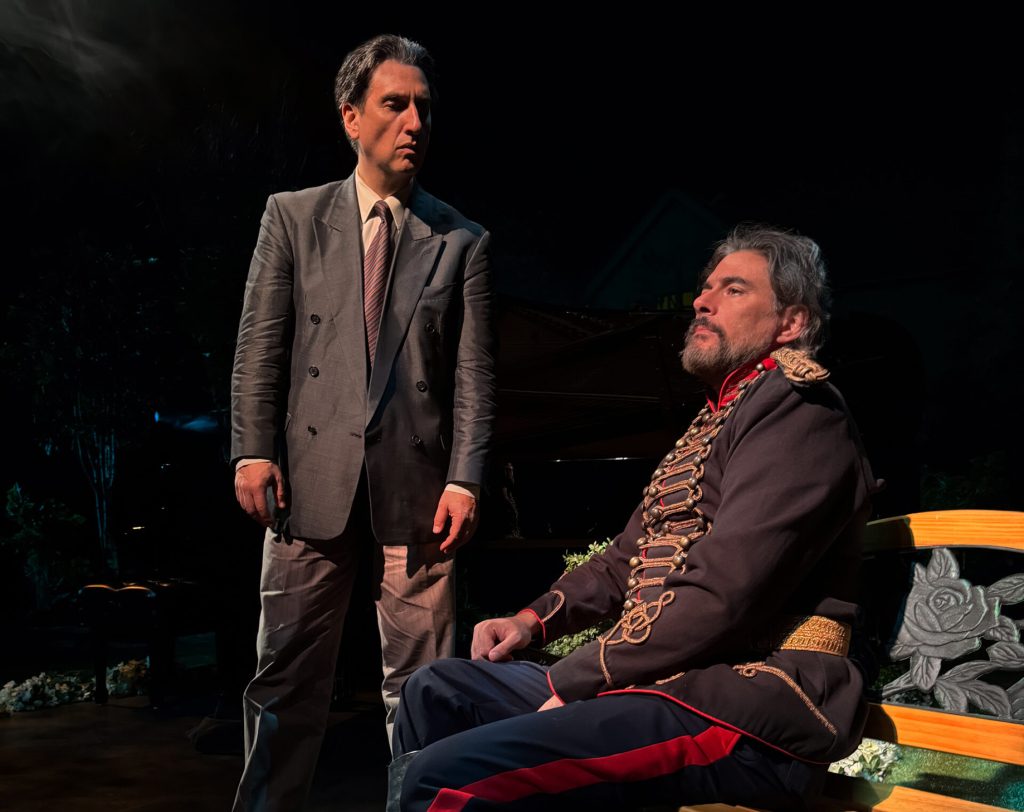
“Rachmaninoff & the Tsar”: Russian Genius Conjures Cruel King—at TheatreWorks
Hershey Felder Plays Melancholy Maestro, Passionate Piano
by Barry David Horwitz
After the Russian Revolution of 1917, Sergei Rachmaninoff fled Russia, abandoned his aristocratic life, and moved to New York. The popular pianist-composer arrives in the U.S. with nothing. Hershey Felder plays the exiled Rachmaninoff with verve and passion, calling up vivid memories of Russia, bringing brilliant acting and musical genius to the role.
As Rachmaninoff, at his lavish Beverley Hills estate in 1943, Felder plays the majestic onstage Steinway grand piano. Felder, virtuoso actor and pianist, summons up the ghost of Tsar Nicholas II, whom he then blames for murdering his subjects. Rachmaninoff never forgives the man who made him an exile.
As a touring Romantic pianist in the U.S., Rachmaninoff is acclaimed as Russia’s greatest composer-pianist. But he is rejected by Russia for many decades and suffers from an inability to compose.

His ghostly counterpart, the hated Tsar (elegant Jonathan Silvestri) brought disaster on his country by killing protesters. When the pitiful Tsar asserts his “God-given” right, Felder lets us know that one-man rule, the oligarch model, leads to Hitler, Stalin, Mussolini. He incorporates Russian themes as orchestrated scenes from Twentieth Century life sweep by.
Felder takes us on a musical journey, as he relives Rachmaninoff’s loss of his sisters and plays his emotional First Piano Concerto at age 16. He recounts his early years, bringing the Concerto to thrilling life.
With roiling military crescendos, the pianist reminds us of his teacher, Pyotr Ilyich Tchaikovsky, echoing the great “1812 Overture.” The bells of Russia ring in their works—romantic memories, full of nostalgia and yearning for what is gone. Sergei struggles to continue his master Tchaikovsky’s legacy—and blames the Tsar for the murder of Tchaikovsky because he was gay.

Longing for Russia, Rachmaninoff’s wife surrounds the family with expatriates, filling their home with reminders—deep red walls, birch trees, and borscht. Russia travels with them to Beverly Hills to the beautiful house and garden.
Sergei lives in California and then Lucerne with his wife and two daughters. He refers to himself as a “Touring Monkey” for musical audiences in the U.S. and abroad, always longing for his homeland. With each magnificent concerto or his “Homage to Paganini,” he relives the catastrophes that shape his life—WWI, The Great Depression, the Nazi’s, and the supposed appearance of the Tsar’s daughter Anastasia. Felder imbues the composer with deep melancholy.
Rachmaninoff’s stories connect his exciting music to the historical panorama. The music rises from his life and his country. He responds musically to events—and struggles memorably to join the world.

“Rachmaninoff and the Tsar” makes essential connections between the political and the personal. Felder shows that music has its source in lived reality. With his divine talent, Rachmaninoff beats the Tsar’s terrors.
Felder has offered musical tapestries of Beethoven, Tchaikovsky, Chopin, Debussy, Gershwin. Once again, he brings a unique combination of acting and music that illuminates their masterworks.
All the Bay welcomes and rejoices in the “final” installment to Felder’s brilliant series. Felder has created his own multi-dimensional art form. Bravo, Maestro!
“Rachmaninoff and the Tsar”—book by Hershey Felder, music of Sergei V. Rachmaninoff, directed by Trevor Hay, video design by Stefano DeCarli, at TheatreWorks, Silicon Valley. Info: theatreworks.org – to February 9, 2025.
Cast: Hershey Felder & Jonathan Silvestri.
Banner photo: Hershey Felder (Rachmaninoff). Photos by Stefano DeCarli